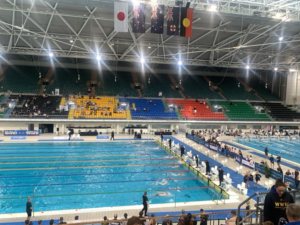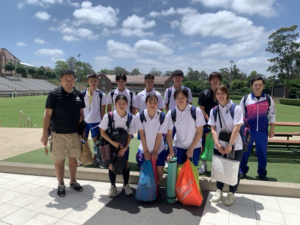Sister city relationships are very beneficial for all parties involved. 2018 marks the 55th anniversary of the first ever sister city relationship between Australia and Japan- the sister city relationship between Lismore in NSW, and Yamatotakada City in Nara Prefecture. This year is also a momentous year for the cities of Christchurch and Kurashiki City in Okayama Prefecture as they celebrate the 45th anniversary of their sister city relationship, which is the first ever sister city relationship established between New Zealand and Japan. Since the establishment of these relationships, many local governments and individuals involved in sister city relationships between Australia/New Zealand and Japan have gained numerous significant tangible and intangible benefits from the relationships.
I believe it is an excellent opportunity to re-examine the advantages of establishing sister city relationships between Australia/New Zealand and Japan in this commemorative year. You may find the following examples as motives for your city or organisation to further develop existing relationships, or initiate new sister city relationships with Japan!
First of all, the similarities in the democracy, richness of nature, and level of safety in Australia, New Zealand and Japan all contribute to reducing the barrier for people-to-people exchange, as it is easy for people to settle in an environment that is similar to their home country.
Secondly, there is little time difference between Australia/New Zealand and Japan. This can make real-time communication easy by phone, email, and software such as Skype. The little time difference also makes it easy when travelling between these countries.
Thirdly, there have been many win-win situations found in Australia/New Zealand and Japan. For example, there are many Australian and New Zealander students learning Japanese, while there are many Japanese students learning English. Furthermore, as Australia and New Zealand are located in the opposite hemisphere to Japan, the opposite seasons in Australia/New Zealand and Japan can entice people to travel to their sister city’s country to enjoy the opposite season.
Making the most of these advantages, there are many sister cities in Australia, New Zealand and Japan utilising technologies such as Skype to conduct language exchange through real-time communication for their students to learn Japanese or English. Moreover, there are also schools that hold student exchange tours to the country where their sister city is located in for several weeks over the school holidays. Some cities also conduct administrative officer based exchange activities.
We believe that local governments in Australia, New Zealand and Japan all have many development potentials through making the most of sister city relationships. Nothing would make us happier than seeing CLAIR’s support for sister city relationships contributing to the further development of local governments in Australia, New Zealand and Japan.

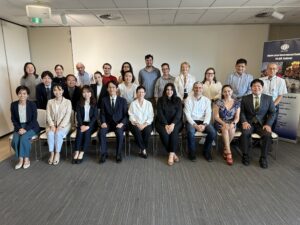

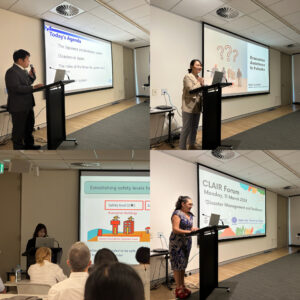
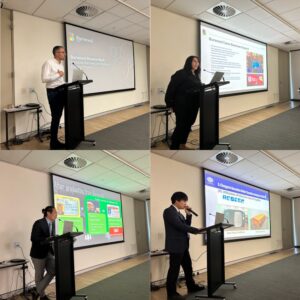
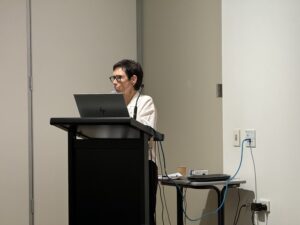
 From the 3rd to the 13th of December, eight selected swimmers from the Fukuoka Swimming Association visited NSW, where they participated in joint training sessions with a local school and competed in the 2024-25 Speedo NSW Senior State Age Championships.
From the 3rd to the 13th of December, eight selected swimmers from the Fukuoka Swimming Association visited NSW, where they participated in joint training sessions with a local school and competed in the 2024-25 Speedo NSW Senior State Age Championships.